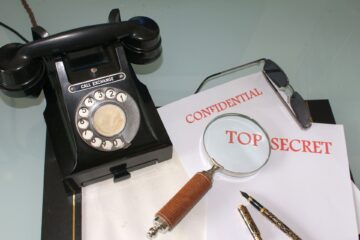![]()
Introduction:
In any proceeding going on in the court, the parties thereto involved in the suit might want to make an appeal in order to obtain an order before the court declares its final judgment. Interlocutory applications are such instruments available to the parties involved in any suit to bring such actions before the court gives its final verdict in the matter.
The definition of Interlocutory applications is given in Rule 2(j) of Civil Rules of Practice and Circular Order, 1980. These applications are filed in a case or proceeding which are already instituted in the court. The orders that are passed by the court in such applications are called Interlocutory orders. The important point to be kept in mind is that these applications can only be filed in civil cases or proceedings and not in criminal cases. The interlocutory application is filed in order to prevent the harm from happening to any movable property or any person during the proceeding. These applications can have different impact on the proceeding. Some applications might require the court to pass interim orders which cause delay in the judgment. Though the court mainly focuses on applications requiring temporary injunctions or similar orders.
Registration of Interlocutory Applications
Rule 53-59 of Civil Rules of Practice and Circular Order, 1980 provides the provisions regarding checking and registration of Interlocutory Applications.
Rule 53 of the order makes it essential that the Interlocutory Application shall be made as in Form number 13. The applications should include the heading with the cause title of the plaint and original petition in form number 13. Every application should be made in the form of a petition which must be accompanied by an affidavit. This was held in the case of “B.Ekambaram vs. Derelle Peda Venkateswarlu”[1] that filing of an application along with an affidavit is necessary and only filing of affidavit cannot be sufficient for such applications. Further, such
application shall be duly signed by the applicant or his/her advocate who will enter the date on which such signature is made. It was held in “G.Krimana Murthy vs. Hemalatha Chit Funds Pvt Ltd.”[2] that an affidavit can also be signed by the applicant or his/her advocate which is a necessary requirement in filing such applications.
Rule 54 of order allows the application to be rejected or returned for amendment if it is not in the form as stated in Rule 53. The plaintiff has the duty to disclose all the necessary information about the defendant and it is also explained in the order. Rule 54 provides for the content of such application, what an application should include and what it shall state. An interlocutory application must include the provision of law and the order or prayer that it seeks in clear terms.
Rule 55 of the order states that there shall be a separate application for each different relief. A plaintiff might want to seek different reliefs from the proceeding and for that, he/she must file different applications for seeking different relief. It mainly depends upon the nature of relief prayed for. If a single application is filed which is asking for different reliefs then the court might direct its view to providing only one relief in such matters. It was discussed and held in the case of “Supriya Cold Storage vs K. Sambasiva Rao And Ors.”[3] that there should be only one prayer in a single petition and a petition with multiple prayer is not maintainable. In order to seek different reliefs, separate applications must be filed.
Rule 56 of the order provides the power to the court to dismiss or reject such application where substantive order is not asked for.
Rule 57 defines Out of Order petition. It means when an application is intended to move as an urgent application, the copy of such application given to the advocate must contain an urgent application that is specified on the endorsement date. Here, the urgent application implies an urgent hearing to be given in the specified case or proceeding.
Rule 58 of the order provides for the service of notice of interlocutory applications. The notice of such applications must be served 3 days before the day which is fixed for the hearing of such application. Such notice shall be served to the advocate and through advocacy to the parties. If a party is not appeared by any advocate then the notice can serve to the parties through speed post, by courier service or by fax, etc. Such notice should only be given after the court gave its orders.
Rule 59 of the order provides for the supply of notice to the other party. The party other than one who has filed the interlocutory application should be supplied with every application filed along with the affidavit and original copies of the application. Other important documents which the registrar thinks to be necessary should be served to the other party. It was held in “Animireddy Venkata Ramana & Ors vs Public Prosecutor”[4] that both the parties should be heard before the hearing and their pleadings must be considered so that none of the parties feel left behind or prejudiced.
Checking of Application
Once an interlocutory order is filed in the court through petition, it must undergo a formal check by the office. The following aspects are kept in mind while checking the application :
- Provision of law; whether the petition is maintainable under such law
- The relief prayed in the application should be clearly and concisely mentioned.
- Whether the notice was served to the opposite party three days before the hearing.
- The title of the cause should be mentioned.
- Whether an affidavit is provided along with the application.
- The affidavit should be duly signed by the parties and counsels.
A petition can be filed by a minor or against a minor. When a petition is filed by a minor, an affidavit under rule 172 shall be filed. When a petition is filed against a minor, a separate petition should be filed for the appointment of a guardian to the minor under order 32.
Interlocutory Applications: Does it cause a delay in the court’s judgment?
The fact that Interlocutory applications are filed in almost all civil cases nowadays, it has become a routine job for advocates to prepare them and for the courts to look into them. The court often has to provide a temporary injunction to the party which leads to delay in the judgment. Speedy trial is being compromised due to such applications but it must not be ignored that these applications are mainly filed for a fair trial so that the parties get a fair chance to prove their stand in the suit. Apart from cases where these applications are filed for genuine purposes, there are many people who take undue advantage of this. Many times, a court is not able to give its judgment due to the petitions. It is seen how people can take undue advantage of Interlocutory applications and it has become a major concern for the Indian courts to look into.
Conclusion
In order to appreciate the benefits of interlocutory applications and avoid their misuse, certain guidelines should be introduced to maintain the credibility of courts. If an application was disposed of in a suit and a similar application is again filed in a similar suit then the court should dispose of the application right away. Checking and verification of these applications should be done with proper attention and every aspect should be accounted for. Interlocutory applications can be one of the best ways to get justice if used properly and the focus should be on reducing its exploitation.
References:
[1] B.Ekambaram vs. Derelle Peda Venkateswarlu, 2011(1) ALT 264. (India)
[2] G.Krimana Murthy vs. Hemalatha Chit Funds Pvt Ltd, 2006(4) ALD 42. (India)
[3] Supriya Cold Storage vs K. Sambasiva Rao And Ors., 2006(3) ALD 659.
[4] Animireddy Venkata Ramana & Ors vs Public Prosecutor, 2010(5) ALD 204.



0 Comments